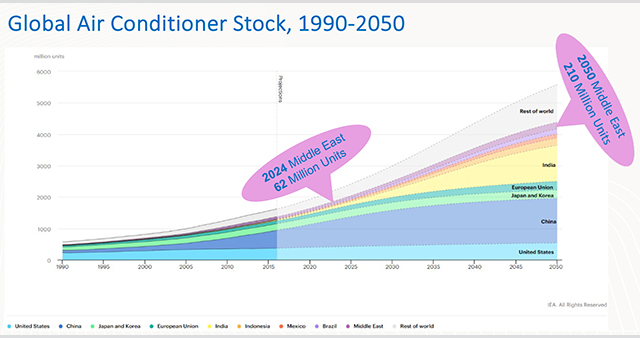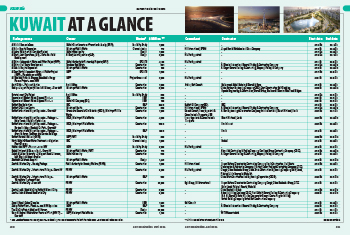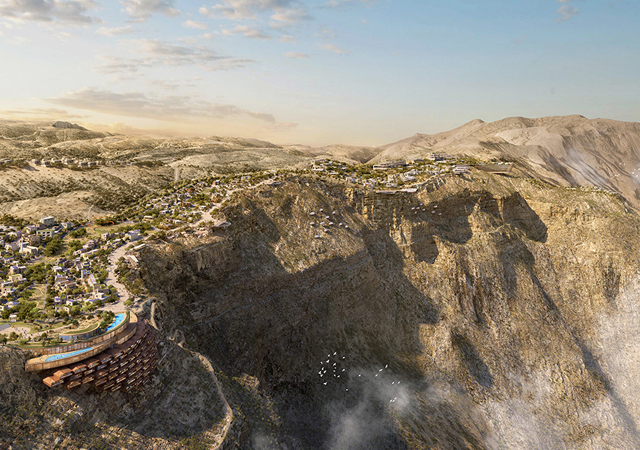
 Causes of failure ... a welder uses a steel bar to force an HDPE pipe into the clamping tool.
Causes of failure ... a welder uses a steel bar to force an HDPE pipe into the clamping tool.
A TRAINING programme conducted in the UAE for high-density polyethylene (HDPE) pipe welders has received such an overwhelming response that the German Plastic Institute SKZ has decided to base one of its engineers in the UAE to enhance its services.
The training centre was set up two years ago jointly by the German institute and the UAE-based BMC Gulf to meet the demand for training and certification of HDPE pipe welders in the Middle East. It has trained more than 250 welders in the region to date.
“SKZ Germany’s decision to base one of its engineers here is in response to the high demand for training and certification of HDPE pipe welders. By serving the GCC from the UAE, we will be even more flexible and provide the market with training on demand, technical support and project supervision,” says Fabian Beermann, division manager at BMC Gulf.
 |
Bad backfilling. |
Commenting on the benefits the programme, he says: “The reward will be a sustainable piping system for the cities, which is very important. The SKZ training is based on the German standards and it is well known that Germany has some of the lowest leakage rates of water systems in the world at only 7.3 per cent. This compares with leakage rates in the Middle East of over 60 per cent in some areas. We are building many desalination plants, but losing half of the water during transportation through leaking pipes, resulting in major financial and environmental damage.
“We strongly believe that the use of polyethylene (PE) and the professional training of the welder can help to drastically reduce these leakage rates and bring them closer to the levels in Germany.”
BMC Gulf is a solution provider in the field of thermoplastics, providing a diverse line of products ranging from piping and lining systems made of HDPE, PP (polypropylene), PVDF (polyvinylidene fluoride) and ECTFE (ethylene chlorotrifluoroethylene) and welding machines to laboratory testing equipment. According to Beermann, it is in the company’s interest to educate the market and to develop high standards.
 |
|
Training ... welders get hands-on experience. |
“In PE piping systems, you need to look at the whole quality chain,” he continues. “Yes, we do have excellent raw material available in the GCC market, from suppliers such as Borouge, Saudi Basic Industries Corporation (Sabic) and Tasnee, and we do have state-of-the-art pipe manufacturers. But what happens after the pipes are delivered to the construction site? We see a lot of pipe damage due to wrong storage and handling methods, we see welding done using the wrong parameters or mistakes made during the pressure testing of the pipes, due to lack of knowledge on the part of both the welders and the welding supervisors.
“PE is a relatively advanced material for the domestic piping systems in gas and potable water, but we do need to ensure that the installation is carried out correctly. If a quality product is installed by somebody who is not sufficiently well trained and educated, you will face serious problems with your piping system. Therefore, the training course covers the complete working process on the construction site.”
 |
|
Beermann ... high demand for training. |
Commenting on the choice of the German Plastic Institute SKZ as a cooperation partner, he says: “SKZ has been operating as a non-profit organisation in the field of plastics for more than 50 years. As the market leader, SKZ trains and certifies over 4,000 thermoplastic pipe welders every year for the German Technical and Scientific Association for Gas and Water (DVGW). In addition, SKZ is an approved institute for third-party certification, testing and site supervision. We simply decided to go with the most experienced player in the market.”
Currently, SKZ offers two training courses for the welding of PE pipes in the UAE. The technicians that weld PE pipes at the construction site attend the basic training course “Certified HDPE Pipe Welder GW330”, while the engineers and consultants who supervise the projects attend the advanced training course “Certified HDPE Pipe Welding Supervisor GW331”.
The welder’s licence, which is issued by SKZ after successful completion of the course, is valid only for one year, which ensures that he attends a one-day refresher course to renew his licence. The company strongly believes that this is very important in order that all SKZ welder licence holders are well trained and up to date. The contents and the validity of the licence offered are based on the established regulations of DVS (German Welding Society) and DVGW.
Elaborating on the requirements that welding machines should meet, Beermann says: “Indeed, the welding equipment is a very important factor for the installation of PE piping systems. The German DVS technical codes (DVS 2208) on plastic joining technologies clearly describe the requirements on welding machines for the butt-fusion and electro-fusion process.
“It is also recommended that automatic CNC (computerised numerical control) welding machines equipped with a data logger unit are used for the process. These machines record the complete welding data (traceability welding reports), which can be integrated in the GIS system of the network owner.”
Commenting on the difficulties faced while training in the Middle East, he says: “Here we have to deal with different nationalities and different levels of education, which meant that we had to set minimum requirements for the attendees. For example, we had to insist that all participants have a basic understanding of English, as most of the installation manuals for PE fittings as well as the operating instructions of the welding machines are in this language.
“Furthermore, the contractors had to understand that they are not paying for a licence but for the training. If the attendee does not pass the practical and theoretical examination at the end of the training period, SKZ will not issue a licence.”
According to Beermann, the water authorities and municipal bodies in the region have appreciated the efforts of the SKZ training centre.
“However, we still see a need for implementing stricter standards for the installation in order to enhance quality. Also, well-trained and knowledgeable inspectors employed by the authorities or their consultants must enforce standards during the installation process through,” he concludes.





















_0001.jpg)


.jpg)
















.jpg)








.jpg)










